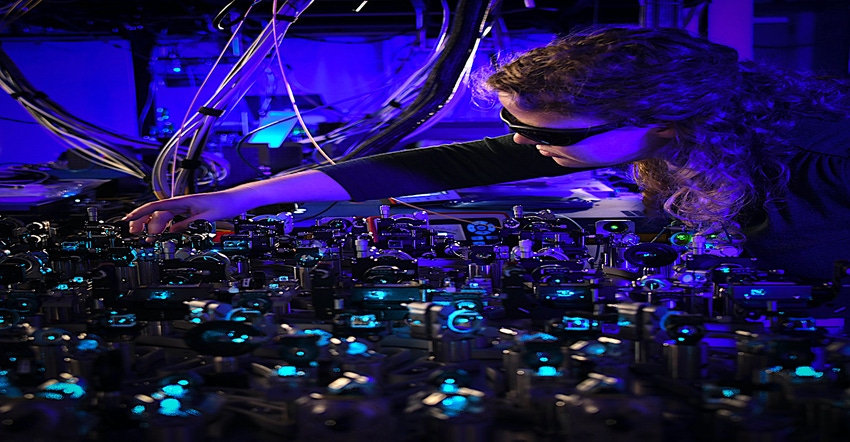Quantum computing is the future. But it needs a combination of two main elements to succeed.
July 6, 2021

The race to secure the largest market share for quantum computing just got a bit tighter.
Honeywell has announced that Honeywell Quantum Solutions (HQS) and Cambridge Quantum Computing (CQC), two leading quantum computing and quantum technology businesses, will combine to form a standalone company.
The quantum computing market is projected to become a $1 trillion industry over the next three decades. Major semiconductor, electronic, and software companies are already seriously building the main elements of a quantum computing platform. For example, by 2029, Google expects a quantum computer to perform error-free, large-scale calculations. IBM is continually improving its Moore’s Law equivalent, the quantum volume metric. Goldman Sachs announced recently that it is working on a quantum computing algorithm to improve its financial instruments.
Honeywell is no stranger to the nascent quantum computing space. The company’s quantum business was first announced in 2018. It was recently listed among the top ten quantum companies to watch in 2021 by Analytics Insights.
The new standalone company will offer the best of HQS’ quantum technology and hardware with a full suite of quantum software from CQC - including one of the first quantum operating systems. These technologies will support improved computation in diverse areas, including cybersecurity, drug discovery and delivery, material science, finance, and optimization across all major industrial markets. According to the press release, the new company will also focus on advancing natural language processing to leverage the possibilities of quantum artificial intelligence.
After the transaction is complete, Honeywell will own a majority stake in the new company, with commensurate governance rights. In addition, Honeywell will invest between $270 million and $300 million in the new company and have a long-term agreement to help manufacture the critical ion traps needed to power the quantum hardware.
Hardware and Software For Computing
There are several different ways to fabricate qubits, the quantum bits that are broadly analogous to the bits used in classical computing. Many organizations worldwide are pursuing these capabilities along four primary paths or modalities: superconductors, photonics, trapped ions, and electron spin within semiconductors (silicon).
Honeywell's approach uses trapped ion-based quantum computing hardware, which recently achieved a quantum volume of 512. This volume is among the highest measured on a commercial quantum computer to date, with further advances to come.
Quantum Volume (QV) is a measure of the increasing capability of quantum computers to solve complex, real-world problems. QV considers a number of factors affecting quantum computations, including qubits, connectivity, and gate and measurement errors.
Honeywell's quantum computer uses trapped-ion technology, which leverages numerous, individual, charged atoms (ions) to hold quantum information. The system applies electromagnetic fields to have (trap) each ion to be manipulated and encoded using laser pulses. These operations require deep experience across multiple disciplines, including atomic physics, optics, cryogenics, lasers, magnetics, ultra-high vacuum, and precision control systems.
CQC is a significant provider of software, cybersecurity, and algorithms that help optimize quantum computing hardware. CQC's software business will remain hardware agnostic and will be fully compatible with all global quantum hardware providers. Honeywell has been an investor in and commercial partner with CQC since 2019. (Image Source: Honeywell, Press Release)

John Blyler is a Design News senior editor, covering the electronics and advanced manufacturing spaces. With a BS in Engineering Physics and an MS in Electrical Engineering, he has years of hardware-software-network systems experience as an editor and engineer within the advanced manufacturing, IoT and semiconductor industries. John has co-authored books related to system engineering and electronics for IEEE, Wiley, and Elsevier.
About the Author(s)
You May Also Like





